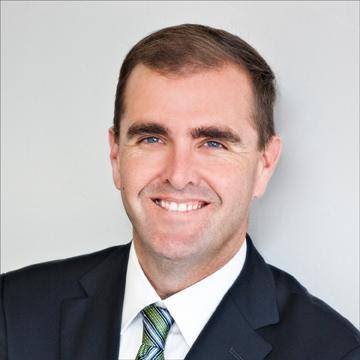Samuel R. Ward, P.T., Ph.D.
Professor and Vice Chair of Research
Department of Orthopaedic Surgery, Radiology, and Bioengineering
University of California San Diego
Seminar Information

The prevalence of rotator cuff (RC) tears in the general population, and particularly in the aged population, represents a substantial burden to the healthcare system and patient quality of life. Surgical intervention is generally successful at reducing pain and improving function. However, reversing negative changes in the muscle, avoiding re-tear, and restoring function remain significant clinical challenges, particularly in patients with chronic, massive tears. Contemporary research is attempting to identify the cellular and molecular mechanisms that drive muscle loss and fat accumulation in RC muscles, but there are a number of hurdles remaining in the field. A key issue is well-characterized, reproducible, and physiologically relevant preclinical models that recapitulate human RC pathology. For example, recent studies from a cohorts of patients with advanced RC disease suggests muscle degeneration, in which muscle fibers are damaged and possibly replaced by fat, is a key feature of the most intractable cases of RC tear. However, these patients seem to have an intact adult muscle stem cell pool, indicating that they are theoretically capable of regenerating muscle. In this presentation, human rotator cuff muscle studies will be discussed along with the evolution of a preclinical animal model, which has yielded interesting approaches to adjuvant therapies (surgical tendon repair plus stimulants for muscle growth). Two specific classes of experiments (biologics stimulating muscle growth and drugs preventing fibrosis and fat accumulation) will be covered at the biological and functional size scales. Additionally, the larger concept of combinatorial therapies, and their timing, will be addressed.
Samuel R. Ward, P.T., Ph.D. is a Professor in the Departments of Orthopaedic Surgery, Radiology, and Bioengineering at UC San Diego. He is also the Vice-Chair of Research in Orthopaedic Surgery, Director of the Device Acceleration Center, and Director of the Muscle Physiology Laboratory.
Dr. Ward received his PhD from USC (1999-2003) and moved to UC San Diego for a post-doctoral fellowship (2003-2006). He has served in the roles of Treasurer, Financial Advisor, and President for a number of State and National organizations. He is a standing Study Section Member for NIH and DoD, and has served as the Chair of the Scientific Advisory Board for a number of organizations. At UC San Diego, he has served and chaired a number of committees in the School of Medicine and on Main Campus. He is a 2018 graduate of the Health Leadership Academy.
Dr. Ward is a clinician-scientist and his research program focuses on musculoskeletal design and plasticity. He has published 145 peer-reviewed manuscripts and has been continuously funded by the NIH, DoD, and other agencies since he started his faculty appointment in 2006. His scientific accomplishments include defining the structural features of human skeletal muscle that predict function in the extremities and spine. This work has been extended to understand normal and pathological muscle biology and physiology in the presence of joint disease. His current focus is on understanding chronic muscle atrophy and cell death in mature adults, with an emphasis on the use of stem cells and regenerative medicine approaches to treat these disease processes. His work has led to career achievement awards including the Kappa Delta Award from the American Academy of Orthopaedic Surgeons and Marion Williams Award from the American Physical Therapy Association. He is also a Fellow of the American Institute for Medical and Biological Engineering and American Physical Therapy Association, and a Distinguished Alumn at the University of Southern California and California State University Long Beach.
Sam is also an avid craftsman, photographer, and outdoorsman. His artistic work has been featured and won awards at several local and state competitions.
